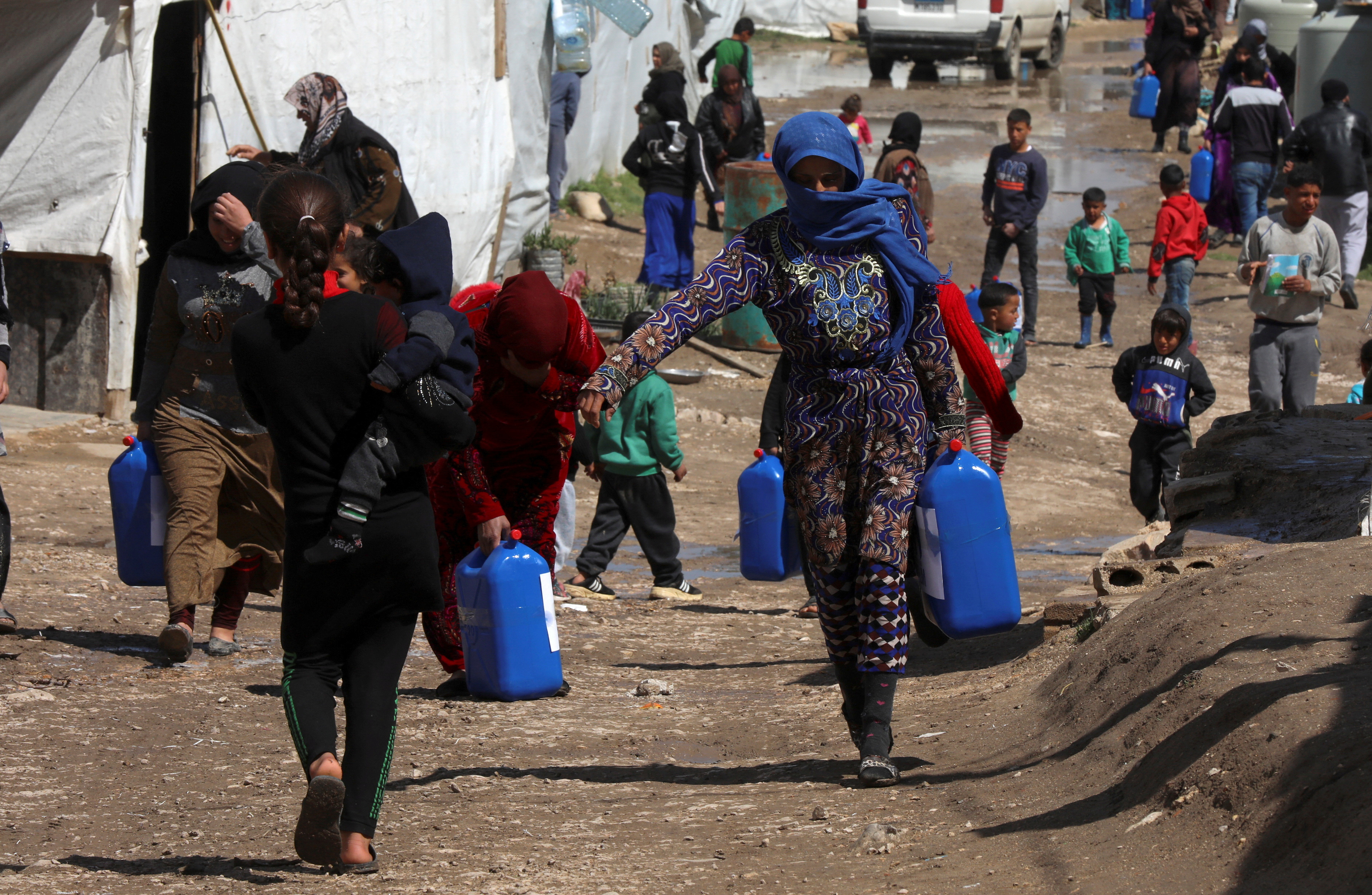Fate of over 5 million Syrian refugees at stake
By John Irish
The European Union will convene donors next week to keep Syria on the global agenda, but as the economic and social burden of refugees on neighbouring countries mounts the bloc is divided and unable to find solutions to tackle the issue, diplomats say.
Syria has become a forgotten crisis that nobody wants to stir amid the war raging between Israel and Hamas and tensions growing between Iran and Western powers over its regional activities.
More than 5 million refugees mostly in Lebanon and Turkey and millions more displaced internally have little prospect of returning home with political stability no closer than since the uprising against President Bashar al-Assad’s rule began in 2011.
Funding to support them is dropping with the likes of the World Food Programme reducing its aid. Difficulties to host refugees are surfacing, notably in Lebanon, where the economic situation is perilous and a call to send Syrians home is one of the rare issues that unites all communities.
“We have no levers because we never resumed relations with the Assad regime and there are no indications anybody really will,” said a former European envoy to Syria.
“Even if we did, why would Syria offer carrots to countries that have been hostile to him and especially taking back people who opposed him anyway.”
Major European and Arab ministers along with key international organisations meet for the 8th Syria conference next Monday, but beyond vague promises and financial pledges, there are few signs that Europe can take the lead.
The talks come just ahead of the European elections on June 6-9 in which migration is a divisive issue among the bloc’s 27-member states. With far-right and populist parties already expected to do well, there is little appetite to step up refugee support.
The conference itself has changed from eight years ago. The level of participation has been downgraded. The likes of Russia, the key actor backing Assad, is no longer invited after its invasion of Ukraine. The global geopolitical situation and drop in the conflict’s intensity keeps it off radars.
Gulf Arab states, which once contributed handsomely, appear disinterested, offering few – none in 2023 – commitments, though unlike their European partners, some have re-engaged with the Assad government given the realities on the ground.
There are divisions within the EU on the subject. Some countries such as Italy and Cyprus are more open to having a form of dialogue with Assad to at least discuss possible ways to step up voluntary returns in conjunction with and under the auspices of the United Nations.







Click here to change your cookie preferences